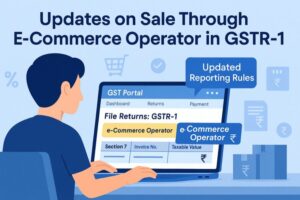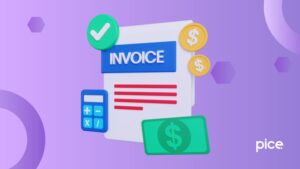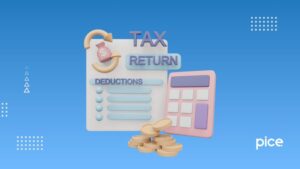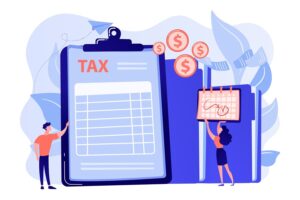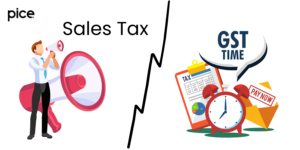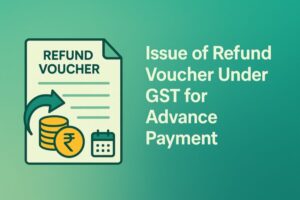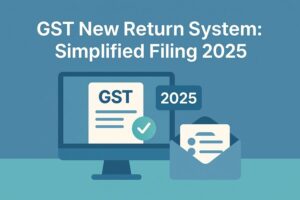Key Changes Relating to GST Input Tax Credit Proposed in the Union Budget 2022
- 1 Sep 24
- 6 mins
Key Changes Relating to GST Input Tax Credit Proposed in the Union Budget 2022
Key Takeaways
- New ITC Condition Added: Section 16(2)(ba) restricts ITC claims to invoices or debit notes appearing in GSTR-2B.
- Extended ITC Time Limit: The time limit to claim ITC is now extended to 30th November of the following financial year.
- Interest on Excess ITC Reduced: Interest on wrongly claimed or utilized ITC is now reduced to 18% per annum.
- No Interest on Mere Wrong ITC Availment: Interest is only levied if wrongly availed ITC is actually utilized, not just claimed.
- Provisional ITC Removed: Provisional ITC is no longer allowed; only ITC reflected in GSTR-2B is considered final.
Under the current tax regime, Input Tax Credit (ITC) is the Goods and Services Tax that a registered person pays on the purchase of goods and services for the furtherance of business. It reduces the output tax liability or GST liabilities of the registered taxpayer, thereby reducing the net tax payable. Under the GST Act, an unregistered person cannot claim ITC.
The GST ITC new amendment proposed to revise the conditions for ITC claims. Learn about the proposed amendments in detail to make informed decisions.
ITC on Payment of Tax
The Finance Bill 2022 introduced several amendments concerning ITC claims. Here are the key changes:
1. New Restriction on Availment of ITC – Introduction of Section 16(2)(ba)
Under Section 16(2) of the GST Act, there are certain conditions for a registered person to claim ITC of the tax applicable on the inward supply of goods and services. Possession of documents, tax payment and furnishing returns are a few of the conditions.
The Finance Bill 2022 proposed an amendment in the conditions to add a new provision for availing ITC. You can avail ITC on the invoice or debit note only when input tax credit details for the respective invoice or debit note is not restricted in form GSTR-2B.
Based on the proposed amendment a registered person can be eligible to claim ITC only when the invoice or debit note details are available to him or her electronically on the GST portal. Further, it should be an auto-generated statement, which is your GSTR-2B.
2. Extension in the Time Limit to Avail Input Tax Credit u/s 16(4)
Under Section 16(4) of the CGST Act 2017, there is a time limit to avail ITC under GST on the inward supply of goods and services. Before the GST ITC new amendment in rule, the time limit of the previous period was earlier of the following two:
- Due date of furnishing returns under Section 39 for the month of September of the next financial year of issuing the invoice or debit note
- The last date of furnishing annual returns
However, after the GST ITC new amendment, as a registered person, you can avail ITC on earlier of the following dates for the current period:
- 30th November of the next financial year following the issuance of the invoice or debit note
- The due date of furnishing annual return
The amendment ensures a longer time period for a registered person to avail input tax credit in respect to invoices or debit notes for inward taxable supply of goods and services.
3. Levy of Interest at 18% on Excess Claim of ITC-Retrospective Amendment

There has been a proposal for a retrospective amendment with effect from 1st July 2017. The amendment aims to levy interest on wrongly claimed ITC or wrongly utilised ITC. Earlier the interest rate was 24% per annum. However, it has been revised to 18% p.a.
4. No Interest in Mere Wrong ITC Availment
There has been a proposal in the Finance Bill 2022 to retrospectively substitute Section 50(3) to levy interest only for cases where ITC is wrongly claimed or utilised. This section provides a levy of interest for undue and excess claims of ITC. However, the provision does not distinguish between ‘ITC merely availed’ and ‘ITC availed and utilised’.
The proposed bill focuses on attracting interest only if ITC is wrongly availed and utilised against output liabilities payment. Nevertheless, interest would not be charged if ITC is merely wrongly claimed and retained in the electronic credit ledger.
5. Other Changes
A substitute for Section 38 has been proposed in the Finance Bill 2022. The proposed amendment would provide the details of supplies where you can avail ITC and where you cannot avail ITC in Form GSTR-2B. Further, there are several restricted scenarios where you cannot avail ITC. The restricted scenarios include default in payment of tax or filing of returns for a prescribed period, mismatch in tax liability of Form GSTR-1 and Form GSTR-3B returns and furnishing fake invoices.
As matching returns would no longer prevail, the concept of provisional ITC has been proposed to be removed. The ITC that would reflect on the electronic credit ledger would be the final ITC for a registered person.
The provision proposed further states that if the supplier does not pay tax, the recipient will have to consider a reversal of input tax for the same with interest. However, the recipient can re-avail ITC when the supplier pays the tax.
Conclusion
Given the GST ITC new amendments, it is crucial to claim ITC correctly to maximise credits and minimie your tax liability on outward supplies. Incorrectly claimed ITC will incur interest charges. To avoid an 18% interest penalty, ensure you understand the specific components eligible for ITC claims.
💡If you want to pay your GST with Credit Card, then download Pice Business Payment App. Pice is the one stop app for paying all your business expenses.
 By
By 






